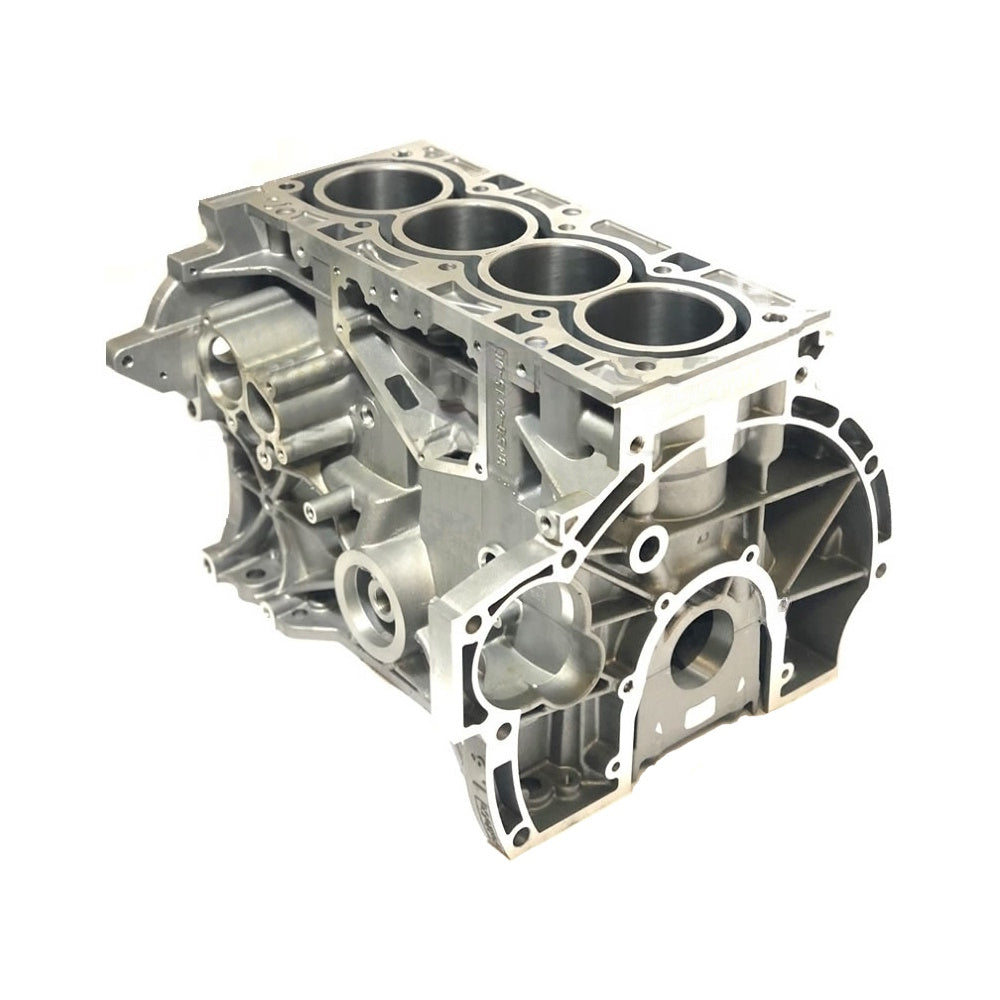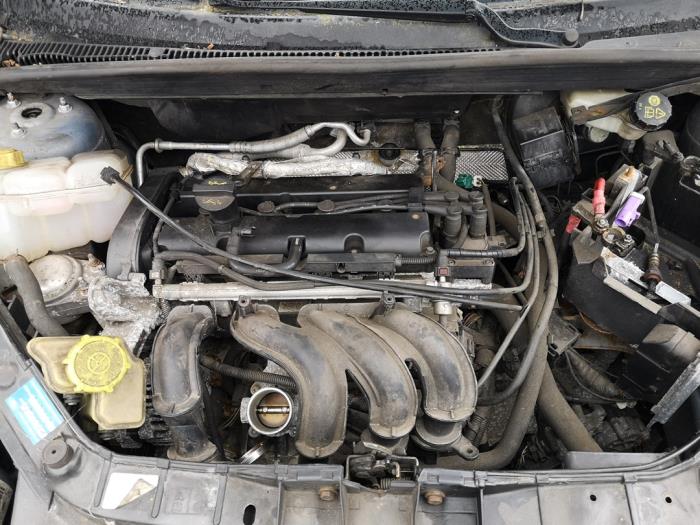Get the Most Out of Your Ford Fiesta Engine with Proper Care
The Future of Engines: Developments Driving Lasting Power Solutions
As the auto sector navigates the imperative change towards sustainability, the future of engines is increasingly specified by groundbreaking developments. Electric engine improvements, alongside promising developments in hydrogen fuel cells and biofuels, are improving the landscape of power services. The development of crossbreed systems further complicates this evolution, presenting both obstacles and chances to minimize emissions effectively. Coupled with the combination of man-made knowledge in engine layout, these technological strides raise important concerns regarding their lasting feasibility and influence on standard standards. What might this suggest for the sector and consumers alike?
Electric Engine Dope
The advancement of electrical engine growths symbolizes an essential shift in the vehicle and aerospace industries, driven by the urgent demand for sustainable choices to nonrenewable fuel sources. This shift is identified by substantial innovations in battery technology, power electronic devices, and electrical motor design, which jointly improve the effectiveness and performance of electrical engines.
Recent developments have actually brought about the production of lighter, more energy-dense batteries, such as lithium-silicon and solid-state batteries, which promise longer ranges and shorter billing times. Furthermore, renovations in electric motor efficiency, such as using irreversible magnets and advanced cooling systems, enable electrical engines to operate successfully under differing conditions. These improvements not only enhance lorry efficiency yet additionally add to a reduction in total power usage.
Moreover, the assimilation of advanced software formulas has maximized energy management in electric lorries, enabling for regenerative braking and predictive billing methods. As suppliers progressively embrace electrical propulsion, the aerospace and automotive sectors are witnessing a standard shift in the direction of greener modern technologies. This evolution not only satisfies regulatory demands however additionally aligns with consumer choices for eco-friendly transport solutions, strengthening electric engines as a cornerstone of future sustainable movement.
Innovations in Biofuels
As the aerospace and auto markets increasingly focus on lasting energy resources, advancements in biofuels emerge as a corresponding remedy to electrical engines. Biofuels, originated from natural products such as crops, waste, and algae, offer an ingenious opportunity for decreasing greenhouse gas exhausts and dependence on nonrenewable fuel sources.
Current study has actually focused on boosting the performance and sustainability of biofuel production. Second-generation biofuels utilize non-food feedstocks, reducing competition with food supply and reducing ecological effect. Improvements in artificial biology have enabled the engineering of microbes to create biofuels a lot more efficiently, leading to greater returns and lower production prices.
Additionally, the development of drop-in biofuels permits seamless integration into existing facilities, allowing a smoother change for sectors traditionally depending on nonrenewable fuel sources. ford fiesta engine. These fuels can be utilized in current engines without modifications, promoting their adoption throughout various markets
Investments in biofuel modern technology, in addition to helpful policies, are important to drive advancement and scalability. As the global area seeks to fight environment change, biofuels offer a practical, instant option that lines up with the overarching goal of sustainability in transport and air travel.
Hydrogen Fuel Cell Innovation
A growing number of firms and researchers are exploring hydrogen fuel cell innovation as a practical option to standard source of power in transport and energy systems. This modern technology transforms chemical energy from hydrogen right into electrical power via an electrochemical response, with water as the only by-product, making it an environmentally friendly option.
The core of hydrogen fuel cells is the fuel cell pile, where hydrogen particles are divided right into electrons and protons. The circulation of electrons produces electrical energy, while protons move through a membrane to incorporate with oxygen from the air, forming water. This process causes high efficiency and low discharges, placing hydrogen gas cells as an essential player in the shift to sustainable energy.
Substantial advancements have actually been made in improving the toughness and effectiveness of fuel cells, alongside reducing prices via cutting-edge manufacturing strategies. Moreover, the development blog here of hydrogen manufacturing methods, such as electrolysis powered by eco-friendly power resources, enhances the sustainability of the general system. As facilities for hydrogen refueling expands and manufacturing methods become extra effective, hydrogen fuel cell modern technology holds terrific assurance for decarbonizing numerous sectors, consisting of heavy-duty transportation and stationary power generation.
Hybrid Solutions and Their Influence
Crossbreed systems represent a substantial evolution in lasting engine innovation, combining standard inner burning engines with electric propulsion to maximize power performance and lower exhausts (ford fiesta engine). This double method allows lorries to make use of both power resources, allowing higher versatility in energy intake and minimizing reliance on nonrenewable fuel sources

Along with ecological benefits, hybrid systems use customers a sensible change in the direction of completely electric lorries. They alleviate array stress and anxiety by integrating the ease of fuel with the advantages of electrical propulsion, making them an eye-catching choice for a larger target market. As makers buy hybrid modern technology, the advancement of more advanced battery systems and lightweight materials proceeds to improve performance. On the whole, crossbreed systems represent a pivotal action towards attaining sustainable transportation and attending to the urgent demand for eco-friendly power remedies.
The Duty of AI in Engine Style
Leveraging innovative algorithms and artificial intelligence methods, the auto market is increasingly integrating expert system (AI) into engine style procedures. AI enhances the efficiency and performance of layout by assessing vast datasets to determine ideal arrangements and efficiency parameters. This capability enables designers to replicate numerous operating problems and forecast engine behavior under multiple scenarios, substantially reducing the time and cost related to standard prototyping approaches.
Furthermore, AI helps with the growth of innovative materials and combustion processes tailored for sustainability. By enhancing gas efficiency and decreasing exhausts, AI-driven designs line up with international campaigns intended at lowering the carbon impact of auto engines. Get the facts Artificial intelligence formulas can additionally anticipate maintenance needs, resulting in improved integrity and long life of engine components.
In Addition, AI is crucial in the assimilation of electrification innovations, such as hybrid systems, where it can optimize battery monitoring and power healing processes. As the industry relocates towards more lasting power options, the function of AI in engine design comes to be progressively important, driving innovation and boosting the performance of future engines. Ultimately, the cooperation between AI and engine layout declares a new age of smarter, cleaner, and a lot more effective automobile modern technologies.

Final Thought
In conclusion, the future of engines is being shaped by a convergence of ingenious modern technologies that focus on sustainability. Electric engine developments, biofuel growths, hydrogen fuel cells, and hybrid systems collectively add to a considerable reduction in exhausts and ecological effect. In addition, the assimilation of expert system in engine layout boosts efficiency and performance. These transformative solutions highlight a dedication to developing a cleaner, more lasting auto landscape, ultimately benefiting both society and the atmosphere.
Electric engine advancements, along with encouraging developments in hydrogen fuel cells and biofuels, are improving the landscape of power solutions. Additionally, improvements in electrical motor performance, such as the use of permanent magnets and progressed cooling systems, make it possible for electric engines to run effectively under varying problems. By maximizing fuel efficiency and minimizing emissions, AI-driven styles straighten with international initiatives aimed at reducing the carbon footprint of automobile engines. As the sector relocates towards even more lasting power solutions, the function of AI in engine style comes to be progressively vital, driving development and improving the efficiency of future engines. Electric engine innovations, biofuel growths, hydrogen gas cells, and crossbreed systems jointly add to a considerable reduction in emissions and environmental impact.